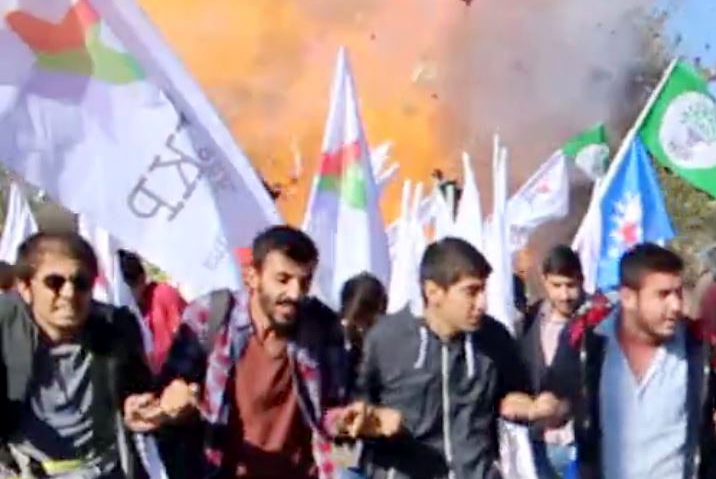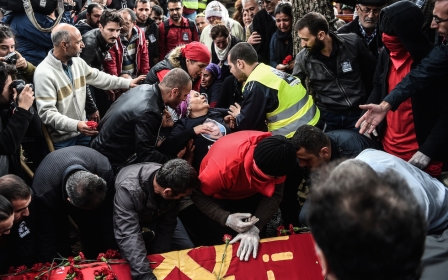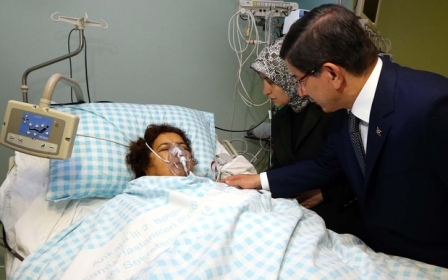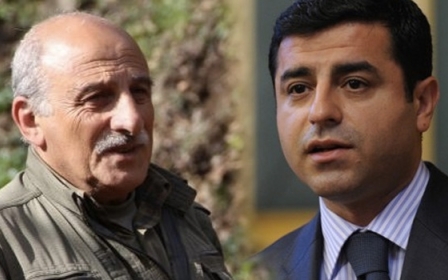Erdogan: Assad, IS and Kurds planned Ankara bombing

In a remarkable act of finger-pointing, Recep Tayip Erdogan has said that the Syrian leadership and groups it is currently fighting in Syria colluded to kill more than 100 people in the bombing of a peace rally in Ankara earlier this month.
The Turkish president on Thursday said the Islamic State group (IS), the PKK, the Syrian-Kurdish PYD and the Syrian intelligence services all colluded to attack the Turkish capital. He offered no evidence for his accusations.
Speaking at a trade union conference in the Turkish capital, Erdogan said: “This was a collective terrorist action. Daesh [IS], the PKK, al-Mukhabarat and the PYD terrorist organisation in northern Syria, were involved in it. All of them jointly planned this action.”
Syria has four intelligence agencies, two of which incorporate the name Mukhabarat - the Military Intelligence Service and the Air Force Intelligence Directorate. The latter, despite its name, is tasked with the most sensitive domestic and overseas operations and is closest to the Assad government.
Erdogan's list brings together several groups actively fighting each other in Syria. The armed wing of the PKK is opposed to IS and the Syrian government of Bashar al-Assad, and fights alongside the Syrian Kurdish PYD party's forces in the north of the country. The Syrian government is also opposed to IS.
Turkey's government is opposed to Assad's government and IS, is fighting the PKK and accuses, as Erdogan did, the PYD of being a terrorist organisation.
Two suspected suicide blasts killed 102 people at the peace rally of mainly union members and supporters of the Turkish, pro-Kurdish, People's Democratic Party (HDP) on 10 October.
Turkish Prime Minister Ahmet Davotoglu said soon after that both the IS group and Kurdish rebels were behind the bombing, the worst in Turkey's history.
Intelligence services later said that the attack bore the hallmarks of IS and on Wednesday said its chief suspect, "Ebu Ali", had links to the group.
Security analysts have said the Ankara blast was similar to a suicide bomb attack in the Turkish border town of Suruc that killed 33 Kurdish and Turkish activists in July, which Turkey blamed on IS.
Others, including members of the HDP, have claimed the bombing to be the work of Turkish spies in an effort to destabilise the party before elections in November.
Middle East Eye propose une couverture et une analyse indépendantes et incomparables du Moyen-Orient, de l’Afrique du Nord et d’autres régions du monde. Pour en savoir plus sur la reprise de ce contenu et les frais qui s’appliquent, veuillez remplir ce formulaire [en anglais]. Pour en savoir plus sur MEE, cliquez ici [en anglais].




